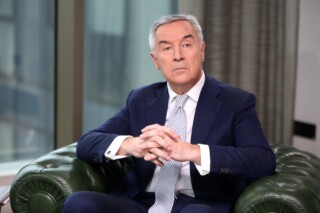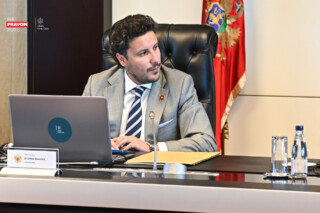The round table aimed at better understanding of peace support operations issue was organised by the Atlantic Council of Montenegro with the support of the NATO Membership Council’s Communication Team.
Ambassador of Hungary Krisztian Posa said that Montenegro had made progress in the process of NATO integration.
As he said, the progress is best shown by the fact that NATO invitation has received in less than ten years after the independence restoration.
“One of the key areas of preparation for full membership is the reform of the defence system, which is achieved by developing the Armed Forces of Montenegro”, Posa said.
He added that the Alliance was satisfied with cooperation with Montenegrin troops in Resolute Support and ISAF missions and that Montenegrin soldiers were responsible and professional.
Posa believes that, despite Montenegro’s size and number of the troops, it could contribute to NATO military operations.
He added that Hungary would continue to support the Euro-Atlantic integration of Montenegro and try to pass on its experience when it comes to armed forces development.
The president of the Atlantic Treaty Association, Fabrizio Luciolli, said that Montenegro had managed to achieve all the goals for NATO membership, to develop professional armed forces and to participate in all processes in Southeast Europe in less than ten years.
He said that Montenegro participated in important operations and that relevantly contributed to security at the regional and international levels.
As he said, Montenegro will become part of a strong security policy and enlargement process means something different. “This is the street with the two sides”.
“Montenegro and other member states have a common security and the Alliance becomes increasingly stronger with new membership”, Luciolli said.
According to him, when it becomes a NATO member, Montenegro will play an important international role and that currently it plays a regional role, which is a stimulus for integration.
“Montenegro’s membership in NATO will be an important pillar of Euro-Atlantic integration for all countries in the region”, Luciolli said.
President of the Atlantic Council of Montenegro, Savo Kentera, said that his organisation would advocate the introduction of voluntary military service.
Atlantic Council will present today research on the attitudes of citizens on military service in Montenegro.
The commander of the Fifth Contingent of the Montenegro’s Armed Forces in the ISAF mission, Major Igor Knezevic pointed out that the participation of Montenegrin soldiers in peacekeeping missions did not begin with the restoration of independence, but it had lasted for three centuries.
He said that the Montenegrin soldiers in the 19th century began to support peace and continue it with independence restoration.
Knezevic was pleased with the participation in the ISAF mission because, as he said, Montenegrin troops got the opportunity to compare with members of foreign armed forces and because they did not feel inferior compared to them.
“We had identical training and knowledge but not the same attitude towards the work. Maybe we were trying harder to prove ourselves in the mission”, Knezevic said.
Former Chief of General Staff of Hungary, Zoltan Szenes said that participation in the mission was one of NATO activities.
He said that membership in the Alliance changed defence and security policy of a country.
According to him, with NATO membership, Montenegro will become part of NATO’s defence planning system and it would need to align with various security policies and strategies and develop its national forces in accordance with the requirements of the Alliance.
He believes that Montenegro will become a NATO member state in a year.




